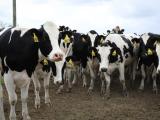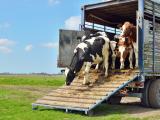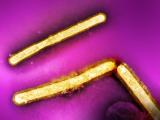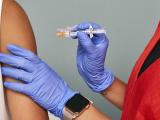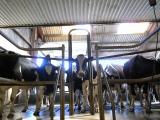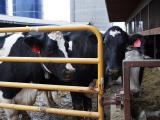Sep 26, 2006 (CIDRAP News) – Scientists reported yesterday that an experimental vaccine triggered a good immune response to H9N2 avian influenza virus, a type that has caused a few human infections and is considered capable of evolving into a pandemic strain.
When combined with an adjuvant (immune-boosting chemical), low doses of the vaccine generated a strong antibody response in volunteers, according to researchers led by Robert L. Atmar, MD, of Baylor College of Medicine in Houston. Their report was published online by Clinical Infectious Diseases.
The vaccine was made by Novartis Vaccines and Diagnostics, formerly Chiron Corp. In 2004 Chiron won a contract from the National Institute of Allergy and Infectious Diseases (NIAID) to make 40,000 doses of the experimental H9N2 vaccine. The NIAID supported the new study.
"The results of this clinical trial add to the growing body of information demonstrating the potential value of adjuvanted avian influenza vaccines," NIAID Director Anthony Fauci, MD, commented in a news release. "In the event of an influenza pandemic, adjuvanted vaccines could provide a way to extend a limited vaccine supply to more people."
Atmar and colleagues write that H9N2 viruses are widespread in Eurasian poultry. Two of the three different Asian lineages of these viruses can bind to human as well as bird cell receptors (sialic acid residues) and therefore may be more likely to infect humans than other avian flu viruses are, they report.
An H9N2 virus infected two children in Hong Kong in 1999, marking the first human cases. Another Hong Kong child had an H9N2 infection in 2003. All three children recovered.
In a phase 1 trial, the researchers tested the vaccine in 96 healthy volunteers between the ages of 18 and 34. The vaccine consisted of purified preparations of the viral surface proteins hemagglutinin and neuraminidase, derived from an H9N2 virus isolated from chickens in Hong Kong in 1997.
Half of the volunteers received the vaccine only, while half received the vaccine with Novartis's MF59 adjuvant. Four dose sizes were used: 3.75, 7.5, 15, or 30 micrograms (mcg). (For comparison, seasonal flu vaccine typically contains 15 mcg of each of three different antigens.) Each volunteer received two doses 28 days apart. The volunteers were tested for antibodies before each vaccination and 4 weeks after the second dose.
Results showed that the adjuvanted vaccine generated significantly better immune responses than the nonadjuvanted vaccine at all dose levels. For example, all those who received adjuvanted vaccine at the lowest dose (3.75 mcg) had a strong antibody response (hemagglutination inhibition titer of at least 32) after the second dose, whereas only 67% of those who received the lowest dose of nonadjuvanted vaccine had a strong response.
In general, a single dose of adjuvanted vaccine triggered as good an antibody response as two doses of nonadjuvanted vaccine. This raises the possibility that a single-dose vaccination may be effective with an adjuvanted vaccine, the authors write.
"In our trial, a single inoculation of adjuvant-containing H9N2 vaccine, even at the lowest dosage, generated a good antibody response," Atmar commented in the NIAID news release.
The injections caused no serious reactions, but mild pain and tenderness at the injection site were more common in those receiving adjuvanted vaccine.
On the negative side, the researchers found that the vaccine generated little reaction to an H9N2 virus different from the one used in the vaccine. Only a minority of the volunteers showed any immune response to this virus, and none had a strong response.
MF59 is currently licensed for use as a vaccine adjuvant in Europe but not in the United States, the NIAID said.
Atmar RL, Keitel WA, Patel SM. Safety and immunogenicity of nonadjuvanted and MF59-adjuvanted influenza A/H9N2 vaccine preparations. Clin Infect Dis 2006 Nov 1;43(9) [Full text]
See also:
Sep 25 NIAID news release
http://www.niaid.nih.gov/news/newsreleases/Archive/2006/Pages/bioshield06.aspx
Dec 10, 2003, CIDRAP News story "Hong Kong probes human case of avian flu"
https://www.cidrap.umn.edu/avian-influenza-bird-flu/hong-kong-probes-human-case-avian-flu
CIDRAP overview of the implications of avian influenza for human disease
http://www.cidrap.umn.edu/cidrap/content/influenza/avianflu/biofacts/avflu_human.html
